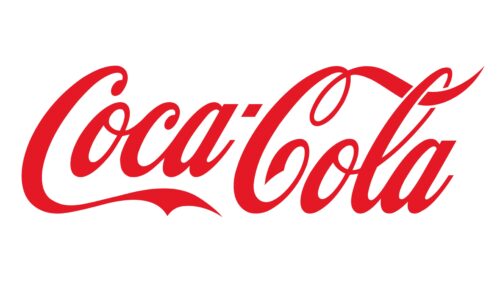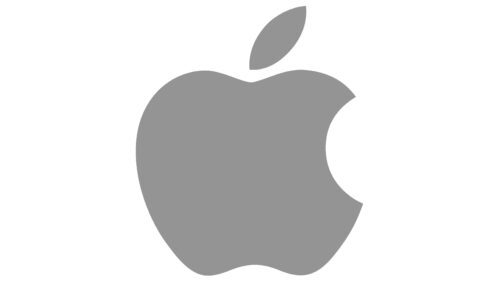Buying stocks during a broader market decline can be risky business.
This is why many investors opt for safety, and there is no better-perceived safety than investing in fundamentally sound companies.
But are there any fundamentally stocks under $200 that are available for invest in? Let’s have a look!
Best Fundamental Stocks Under $200
Coca-Cola Co (NYSE: KO)
Coca-Cola continues to solidify its position as the world’s leading non-alcoholic beverage company, with a portfolio exceeding 500 brands and operations in over 200 countries.
The company’s enduring appeal is evident in its consistent performance and strategic adaptability.
As of May 30, 2025, Coca-Cola’s stock is trading at $71.49, reflecting investor confidence bolstered by robust financial results.
In the fourth quarter of 2024, the company reported a 6% increase in revenue, reaching $11.5 billion, surpassing Wall Street expectations.
This growth was driven by higher prices and steady demand, particularly in emerging markets like India, and strategic partnerships with fast-food chains such as McDonald’s.

Coca-Cola’s commitment to shareholder returns remains unwavering. In February 2025, the company announced a 5.2% increase in its quarterly dividend, marking the 63rd consecutive year of dividend growth.
The annual dividend now stands at $2.04 per share, yielding approximately 2.94% .
This consistent dividend policy underscores the company’s financial stability and dedication to returning value to shareholders.
The company’s profitability remains strong, with a net profit margin of 22.59% as of December 31, 2024 .
This robust margin reflects Coca-Cola’s efficient operations and ability to navigate economic challenges. Looking ahead, the company projects organic revenue growth of 5% to 6% for 2025, with comparable earnings per share expected to rise by 2% to 3% .
Coca-Cola’s strategic initiatives, including product innovation and expansion into health-conscious segments like Coca-Cola Zero Sugar, have contributed to its sustained growth.
In the fourth quarter of 2024, Coca-Cola Zero Sugar’s volumes increased by 13%, highlighting the company’s responsiveness to evolving consumer preferences.
Despite potential challenges, such as proposed regulatory changes targeting sugary beverages, analysts suggest the financial impact on Coca-Cola will be minimal.
The company’s diversified product portfolio and global presence provide substantial insulation against such risks.
Warren Buffett’s Berkshire Hathaway remains a significant stakeholder, holding over 9% of Coca-Cola’s shares, valued at approximately $29.7 billion. This long-term investment underscores Buffett’s confidence in Coca-Cola’s enduring value and consistent dividend returns.
In summary, Coca-Cola’s robust financial health, strategic adaptability, and consistent dividend growth make it a compelling choice for investors seeking stability and long-term value.
Its performance in 2025 reflects its resilience and ability to navigate market challenges effectively.
Johnson & Johnson (NYSE: JNJ)
Founded in 1886, J&J is an American multinational that manufactures pharmaceuticals, medical devices, and consumer goods.
The company ranks among the top 40 by revenue in the United States.
Johnson & Johnson also finds itself among the ranks of dividend kingship.
The American multinational has raised its yield for 60 consecutive years. Currently, it pays investors a dividend yield of 2.77%.
Diversification is built within the company’s DNA which helps fuel its fundamental strength. There are close to 250 subsidiaries in the conglomerate’s portfolio.
Tylenol, Neutrogena, Listerine, and the brand bearing the company’s name are among some of the home staples that JNJ is known for.
JNJ has nearly $18 billion of free cash flow compared to nearly $23 billion in debt—a 9% decrease from the previous year.

This is all while boasting a triple-A credit rating that should give the company financial ammo to invest in further growth.
The company recently reported fourth-quarter earnings in January 2023, which beat EPS by 5%. However, revenue decreased from the third quarter.
Nevertheless, analysts remain optimistic about the company’s earnings growth potential.
Forward guidance dictates that Coca-Cola’s sales could get a year-over-year rise of 5% in 2023—boasting EPS growth of more than 4%.
JNJ’s stock price is still below $200, but it might not stay that way for long. The company is only 22% shy of being priced out of our list.
The company’s forward price-to-earnings (P/E) ratio is 14x.
This is comparably low when measured against similar companies like Procter & Gamble, which have a forward P/E of 22x.
JPMorgan Chase & Co (NYSE: JPM)
Johnson & Johnson established in 1886, continues to be a leading American multinational corporation specializing in pharmaceuticals, medical devices, and consumer health products.
With a vast portfolio of over 250 subsidiaries, the company boasts well-known brands such as Tylenol, Neutrogena, and Listerine.
In the fourth quarter of 2024, Johnson & Johnson reported revenues of $22.5 billion, marking a 5.3% increase year-over-year.
The adjusted earnings per share (EPS) for the quarter stood at $2.04, reflecting the company’s robust operational performance.
For the full year 2024, the company achieved revenues of $88.8 billion, a 4.3% increase compared to the previous year. The adjusted EPS for the year was $9.98.
Looking ahead, Johnson & Johnson has provided guidance for 2025, projecting operational sales growth between 2.5% and 3.5%, and an adjusted operational EPS ranging from $10.75 to $10.95.

Like other fundamentally strong companies on our list, JPM also pays dividends.
The company’s commitment to shareholder returns remains steadfast. As of May 30, 2025, Johnson & Johnson’s stock is trading at $153.58.
The company recently announced a quarterly dividend of $1.30 per share, payable on June 10, 2025, representing a 4.8% increase from the previous dividend.
This marks the 62nd consecutive year of dividend increases, underscoring its status as a Dividend King.
Financially, Johnson & Johnson maintains a strong position. The company holds a triple-A credit rating and continues to generate substantial free cash flow, enabling ongoing investments in research and development, as well as strategic acquisitions.
In summary, Johnson & Johnson’s diversified business model, consistent financial performance, and commitment to shareholder value make it a compelling consideration for investors seeking stability and long-term growth potential.
Apple Inc (NASDAQ: AAPL)
Apple remains a dominant force in the technology sector, boasting a market capitalization of approximately $2.99 trillion as of May 28, 2025.
The company’s diversified product and service offerings continue to drive its substantial revenue streams.
In the second quarter of fiscal year 2025, Apple reported a revenue of $94.9 billion, with an adjusted earnings per share (EPS) of $1.64 . The iPhone remains the primary revenue contributor, accounting for approximately 52% of the total revenue.
Apple’s financial strength is underscored by its substantial cash reserves, which stood at $48.5 billion in cash and short-term investments as of March 31, 2025 .
This robust cash position enables the company to invest in research and development, pursue strategic acquisitions, and return value to shareholders.

The company maintains a manageable debt profile, with $8 billion in debt maturing between May and November 2025 .
Apple’s strong balance sheet and consistent cash flow generation provide ample capacity to meet its debt obligations.
Apple continues to reward its shareholders through dividend payments and share repurchase programs.
In May 2025, the company declared a quarterly dividend of $0.26 per share, marking a 4% increase from the previous quarter .
This represents the 14th consecutive year of dividend increases, reflecting Apple’s commitment to returning capital to shareholders.
Despite facing challenges such as regulatory scrutiny and competitive pressures, Apple remains well-positioned for long-term growth.
The company’s ongoing investments in innovation, coupled with its strong brand loyalty and expansive ecosystem, continue to drive its success in the global market.
Amazon.com, Inc. (NASDAQ: AMZN)
Amazon.com continues to demonstrate robust financial performance in 2025. As of May 29, 2025, the company’s market capitalization stands at approximately $2.18 trillion.
In the first quarter of 2025, Amazon reported net sales of $155.7 billion, marking a 9% increase compared to the same period in 2024.
The company’s net income rose to $17.1 billion, or $1.59 per diluted share, up from $10.4 billion, or $0.98 per diluted share, in the first quarter of the previous year .

Amazon Web Services (AWS), the company’s cloud computing division, generated $29.3 billion in revenue during the first quarter, reflecting a 17% year-over-year growth.
AWS’s operating income reached $11.5 billion, contributing significantly to Amazon’s overall profitability.
Despite these strong results, Amazon’s guidance for the second quarter of 2025 has been met with some investor caution.
The company projects net sales between $159 billion and $164 billion, with operating income expected to range from $13 billion to $17.5 billion.
Factors such as potential impacts from new tariffs on Chinese imports have introduced uncertainties into the company’s near-term outlook.
Overall, Amazon’s diversified business model, encompassing e-commerce, cloud computing, and digital advertising, positions it well for sustained growth in the evolving global market.
Are Fundamental Stocks a Good Investment?
Stocks with strong fundamentals tend to have greater chances of success, making them a potentially sound investment decision.
When a stock is fundamentally sound, they tend to have a good dividend yield, low debt, high cash flow basis, and continued strong growth.
In turn, fundamentally strong companies tend to produce strong investment returns.
Many investors might opt to buy cheap stocks with strong fundamentals during an economic downturn.
This is because quality stocks have a higher chance of weathering the storm and, in turn, offer lower risk and higher growth opportunities.
When the stock market eventually rebounds, stock prices for fundamentally strong growth stocks could experience accelerated value appreciation. This then results in a handsome profit for shareholders.
Analyzing the health of a company’s fundamentals could be difficult and require a high degree of expertise.
However, some indicators that non-professionals can look into can help them make an educated decision.
Some of these indicators include the following:
- A company’s sales
- How much debt does a company have
- Their earnings growth performance
- Dividend history
- Price to earnings and how it compares with the industry
- Their competitors
- A company’s competitive advantage
Many investors choose to make their purchase decisions solely based on fundamental analysis. But employing technical analysis in conjunction with fundamental analysis could yield better results.
Technical analysis is used by traders, algorithms, and smart money to make buying and selling decisions.
When technicals and fundamentals are not aligned, it could be a strong indicator that either methodology is wrong.
For this reason, it’s critical to consider both fundamental and technical analysis before investing.
For example, if a company’s stock’s valuation remains unchanged, bullish technicals could lag.
Now that you know more about the best stocks to buy under $200 with strong fundamentals, you might consider adding one (or more) to your portfolio.
FAQS
How Do You Find a Good Fundamental Stock?
A stock market screener is the best way to find a good fundamental stock. A good way to start is by filtering by P/E, Market Cap, Price/Free Cash Flow, etc. However, you will need to analyze the stock’s fundamentals to determine its worthiness.
What Is Technical vs Fundamental?
Technical and fundamental analysis are two different methodologies investors use to evaluate stocks. Fundamental analysis evaluates a company by measuring its intrinsic value. Technical analysis is a study of the price action of a company. When combined, they can be effective tools to help investors succeed in the markets.
What Does It Mean to Have Good Fundamentals?
A company is considered to have good fundamentals when it meets certain criteria, including:
- Low debt dependency
- Plenty of free cash flow
- Strong leadership and ESG
- Global footprint
- Strong brand recognition
- Track record of growth
- Uninterrupted dividend increases, if they pay them
How do you evaluate fundamentals?
Evaluating the fundamental value of a company requires:
- An understanding of the company and industry in which you intend to invest
- Studying financial and earnings reports
- Analyzing ESG practices and ratings
- Check the company’s debt-to-income ratio and credit rating
- Analyzing future prospects and competitors
- Finding a competitive edge


 Tags:
Tags:










